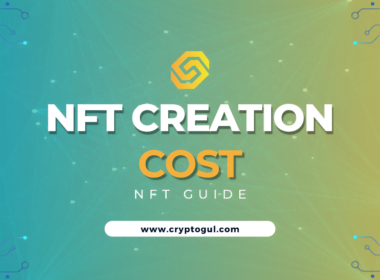The question of who or what really controls the value of cryptocurrencies is a matter of intrigue and speculation
Cryptocurrencies have been a hot topic for over a decade, with their values often experiencing wild fluctuations. .
In this article, we will explore the factors influencing cryptocurrency value and the key players involved in the market, shedding light on the complex dynamics that drive these digital assets.
Understanding Cryptocurrency Value
The value of a cryptocurrency is derived from its utility, demand, and perception in the market.
Unlike traditional fiat currencies, cryptocurrencies are not backed by a central authority or tangible assets, making their valuation more complex and dependent on a variety of factors.
So who controls the value of cryptocurrency?
Factors Influencing Cryptocurrency Value
Several factors contribute to the value of cryptocurrencies:
Market Demand and Supply
- The basic economic principle of supply and demand significantly affects cryptocurrency value. When demand for a particular cryptocurrency increases, its value typically rises. Conversely, when demand decreases, the value drops.
- The total supply of a cryptocurrency also plays a role in its value. Some cryptocurrencies, like Bitcoin, have a capped supply, which can create scarcity and drive up the price.
Technological Advancements
- Cryptocurrencies are built on cutting-edge technologies, and improvements or innovations in these technologies can impact their value.
- For example, advancements in blockchain scalability or the introduction of new privacy features can increase the utility and demand for a cryptocurrency, leading to higher valuations.
Regulatory Changes
- Regulatory changes and government policies can have a significant effect on cryptocurrency value. Favorable regulations or endorsements by governments can boost market sentiment and drive up demand, while restrictive regulations or bans can lead to a decrease in value.
- Regulatory uncertainty can also create volatility in the market, as investors and traders react to potential policy changes.
Market Sentiment and Media Coverage
- Market sentiment and media coverage can heavily influence the value of cryptocurrencies. Positive news and hype can attract new investors, driving up demand and increasing the value of a cryptocurrency.
- Conversely, negative news or fear, uncertainty, and doubt (FUD) can lead to panic selling and a drop in value.
Key Players in the Cryptocurrency Space
Several key players contribute to the dynamics of cryptocurrency value:
Developers and Protocol Creators
Developers and protocol creators are responsible for creating and maintaining the underlying technology of cryptocurrencies. Their decisions, such as implementing upgrades or changing tokenomics, can have a direct impact on the value of a cryptocurrency.
Miners and Validators
- Miners and validators secure and maintain the blockchain networks that cryptocurrencies operate on. They play a crucial role in ensuring the stability and reliability of these networks, which in turn can influence the value of the associated cryptocurrencies.
- Miners can also influence the supply of a cryptocurrency, as they are responsible for mining new coins and can choose which transactions to include in the blockchain based on transaction fees.
Exchanges and Trading Platforms
- Exchanges and trading platforms provide the infrastructure for buying, selling, and trading cryptocurrencies. They can influence the value of cryptocurrencies by listing or delisting specific coins, which can impact their liquidity and demand.
- Trading volume and liquidity provided by these platforms can affect market sentiment and price discovery.
Institutional Investors and Whales
- Institutional investors and whales, or individuals with significant cryptocurrency holdings, can have a considerable impact on the value of cryptocurrencies.
- Large trades can create price movements in the market, and their investment decisions can influence market sentiment.
Retail Investors and Traders
- Retail investors and traders also contribute to the dynamics of cryptocurrency value. Their collective actions, driven by market sentiment, news, and trends, can lead to price fluctuations and market volatility.
Market Manipulation in Cryptocurrency
Market manipulation is an unfortunate reality in the cryptocurrency space, with several tactics being employed by bad actors:
Pump and Dump Schemes
- Pump and dump schemes involve artificially inflating the price of a cryptocurrency through coordinated buying and the spreading of misleading or false information, followed by selling at the inflated price to unsuspecting investors.
Spoofing and Wash Trading
- Spoofing involves placing large buy or sell orders with no intention of executing them, creating the illusion of high demand or supply and influencing the market price.
- Wash trading involves simultaneously buying and selling the same asset to create the appearance of high trading volume, which can attract more investors and inflate the value of a cryptocurrency.
Insider Trading: Unfair Profits and Cryptocurrency
- Insider trading happens when people use private information about a cryptocurrency or its technology to make transactions, unfairly gaining profits due to their exclusive knowledge.
Decentralization: The Driving Force of Cryptocurrency Value
The heart of cryptocurrencies lies in decentralization, which seeks to eliminate central control points and distribute power across a network of participants.
This distributed nature makes it tough for any one entity to manipulate a cryptocurrency’s value, leading to the intricate and often unpredictable valuations we see.
Stablecoins: Bringing Balance to the Crypto Market
Stablecoins, a type of cryptocurrency tied to stable assets like the US dollar or gold, have a distinctive role in the crypto market.
They offer stability and liquidity, acting as a refuge during turbulent market times.
The growing use of stablecoins can also indirectly affect the value of other cryptocurrencies by shaping market sentiment and boosting overall confidence in the crypto world.
Cryptocurrency Value: A Glimpse into the Future
As the cryptocurrency landscape matures and adoption spreads, the factors that shape cryptocurrency value will likely change.
Technological progress, increased regulations, and the arrival of more institutional investors could bring more stability and predictability to the market.
However, the inherent decentralized nature of cryptocurrencies guarantees that their valuation dynamics will always be intricate and multi-layered.
Conclusion: Demystifying Cryptocurrency Value
Peeling back the layers of who truly controls cryptocurrency value uncovers a complicated interplay of factors and major players.
Market demand and supply, tech advancements, regulatory shifts, market sentiment, and media influence all play a part in the ever-changing worth of digital assets.
A variety of actors in the crypto space, ranging from developers to institutional investors, also help shape market dynamics. The added elements of market manipulation, decentralization, and the rising role of stablecoins make the puzzle even more complex.
As the cryptocurrency ecosystem keeps evolving, grasping the forces that determine value will continue to be an intriguing and vital challenge for investors and market participants alike.
There is no single factor that determines the value of a cryptocurrency. Instead, it is the result of a complex interplay of factors, including market demand and supply, technological advancements, regulatory changes, market sentiment, and the actions of various market participants.
While individual actors, such as institutional investors or whales, can influence the value of a cryptocurrency, the decentralized nature of these digital assets makes it difficult for any single person or entity to exert full control over their value.
Stablecoins can indirectly impact the value of other cryptocurrencies by providing stability and liquidity to the market, acting as a safe haven during periods of volatility, and increasing overall trust in the crypto space.
Exchanges play a crucial role in providing the infrastructure for buying, selling, and trading cryptocurrencies. They can influence the value of cryptocurrencies by listing or delisting specific coins, impacting their liquidity and demand, and affecting market sentiment and price discovery through trading volume and liquidity.
As the cryptocurrency ecosystem matures and adoption grows, it is possible that the factors influencing cryptocurrency value will evolve, potentially leading to greater stability and predictability in the market. However, the decentralized nature of cryptocurrencies ensures that the dynamics of their valuations will remain complex and multifaceted.








